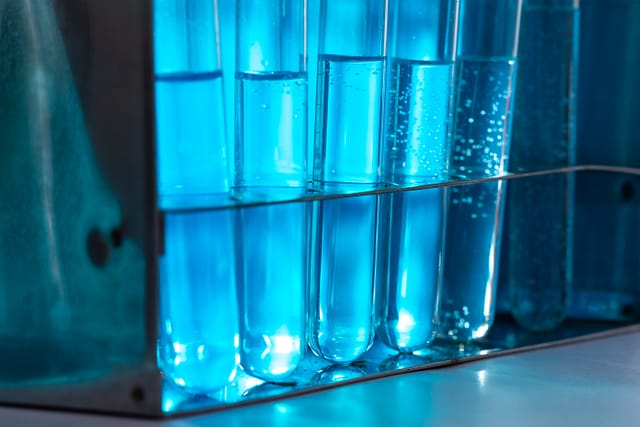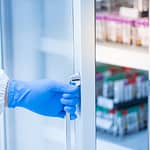
Are you Securing the Integrity of Samples for Compliance and Safe Use?
Astoriom ICH sample stability storage and assessment solutions provide our global R&D customers with an industry-leading comprehensive portfolio of ambient storage temperatures, humidity-controlled environment and ICH global climatic zone capabilities.
ICH Q1A Sample Stability Storage
- Validated ambient and humidity-controlled environments (Standard Offering)
- 21°C/45% RH – Zone 1
- 25°C/60% RH – Zone II
- 30°C/35% RH – Zone III
- 30°C/65% RH – Zone IV
- 30°C/75% RH – Zone IVb
- 40°C/75% RH – Accelerated ambient
- Ambient and humidity-controlled environments (Custom Request)
- 25°C/40% RH
- 30°C/25% RH
- 40°C/NMT 25% RH
- Cabinet storage – (50°C, 55°C, 60°C)
- Intermediate trial conditions for climatic zones (I, II, III and IVa)
- Long term trial conditions for climatic zones (I, II, III, IVb)
- Accelerated trial conditions for Zones (I – IV)
Our customers trust us to storage their samples in highly controlled environments so they may meet international regulatory agency requirements for their scientific research and consumer products. Managing and securing samples in these controlled environments ensures the integrity, security and reliability of your samples.
Some of our top areas of sample stability expertise includes:
Biological pre-clinical and clinical research samples
Drug and device samples
Consumer product samples
Industrial manufacturing samples
Reference sample batches – check a sample or reagent to ensure compliance with market authorization
Retained sample batches - verify batch integrity of samples in case of downstream issues such as contamination
Disaster recovery samples - Disaster planning & recovery solutions
Supporting various business activities through comprehensive sample stability solutions
Our ICH Sample Stability Assessment Solutions
Astoriom offers both photostability, thermal cycling and secondary accelerated aging time testing within our facilities to support the evaluation of environmental impact conditions, such as storage temperatures, humidity and light conditions on samples in storage or transport over time, enhancing the efficiency of stability assessments.
Our stability assessment experts will partner with you to discuss your regulatory compliant sample stability needs and advise you on our in-house referral laboratory solutions.
Learn more about our in-house stability assessment capabilities:

The Value of Partnering with Astoriom for ICH Sample Stability Storage

Photostability Testing
Stress-test the impact of UV light on sample stability and integrity.
Explore our comprehensive photostability testing solutions:
Photostability chamber/s operate at validated ambient temperatures
ICH Q1B Photostability Testing Compliance
Meet D65/ID65 emission standards for indirect indoor daylight environments
Meeting ISO 9001 standards for exposure to a cool white fluorescent or near UV indoor environments
Benefit from constant monitoring of lux and ultraviolet levels
Validated testing procedures
Benefit from elapsed time meters constantly monitoring lamp life
Single batch testing of samples and studies could be required to be repeated depending on the photostability characteristics determined at the time of initial filing and the type of variation or change made.

Thermal Cycling Testing
Reproduce transportation conditions safely and securely
Thermal Cycling allows the appropriate tests to be carried out to assess the impact of temperature fluctuation on samples during production, transport and storage and to assess how to best avoid adverse effects that could reduce sample life. The completion of this study will uncover the potential effects of temperature deviation that any product or substance can experience during shipment, shelf-life and storage.
It is important to understand the effects the various environments may have on your products; factors such as unforeseen weather conditions, natural disasters, general traffic congestion and aeronautical travel can all be an element of changes in conditions for a product being transported.
Cycling studies using Astoriom cycling equipment can reproduce these conditions in a validated state and cycle at various hour periods without the disruption of moving product from one chamber to another.
Secondary accelerated aging time
The introduction of new or modified medical devices requires evidence that they can be stored or used without any deleterious effects on performance that may impact patient safety and efficacy.
Note: Real-time studies should be performed in parallel to Accelerated Studies
By exposing or “stressing” the product to higher temperatures than would be used for ambient aging, an increased reaction rate is correlated to normal ranges. To determine accelerated aging time, it is essential to create models that accurately reflect the dynamics of aging processes.
A simplified protocol based on the Arrhenius equation, also called the 10-degree rule, is used where it is assumed that a ten-degree temp increase results in a 2 fold increase in reaction rate.
